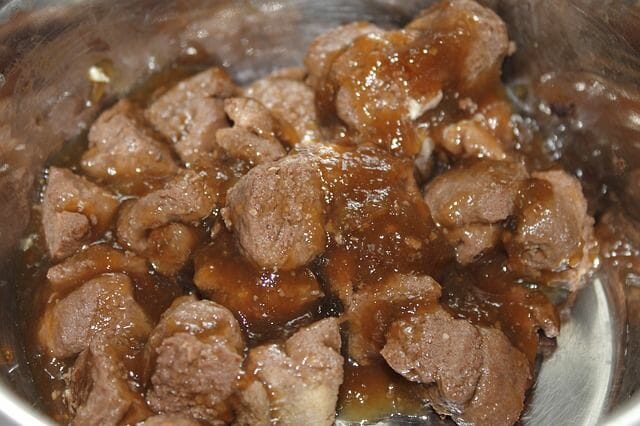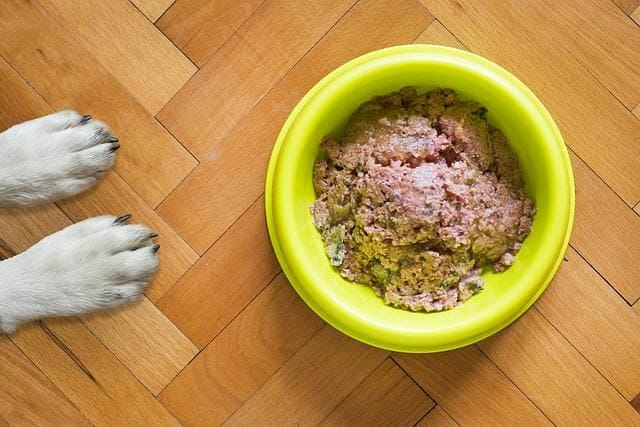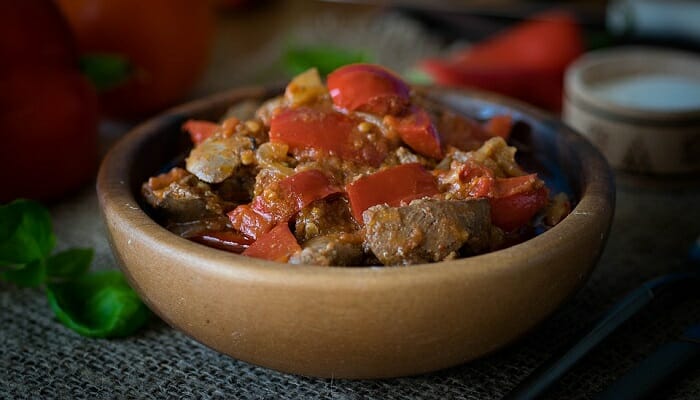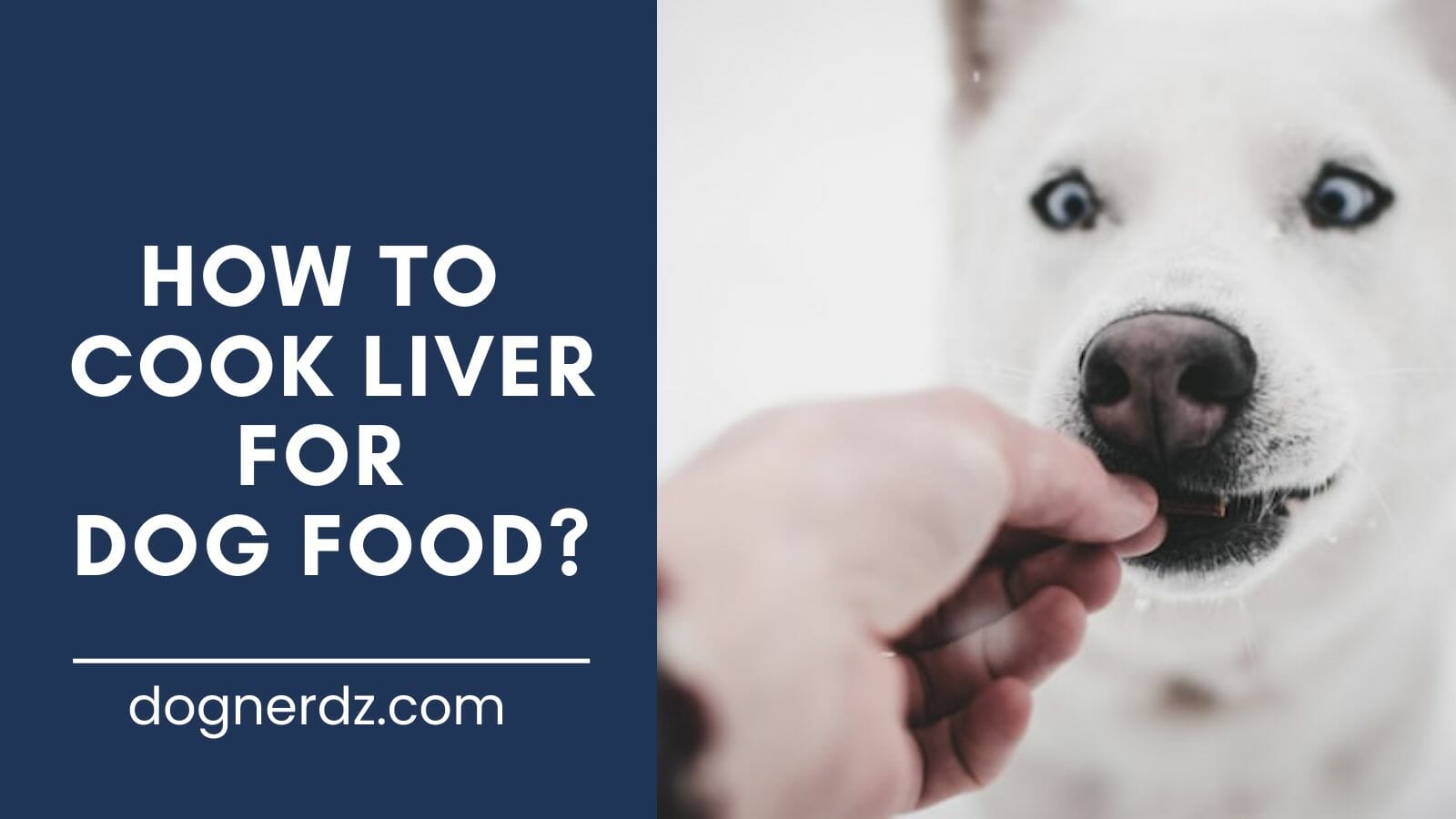How to Cook Liver for Dog Food?
Table of Contents
If you’ve got a pup turning their nose up at dinner, or if you’re looking to boost your furry friend’s meals with a punch of nutrition, liver’s your go-to! This superfood packs a powerful dose of iron, vitamin A, and B vitamins. Whether it’s beef, chicken, or pork liver, your dog gets a health kick. Want the juiciest, most nutrient-rich option? Hit the kitchen and cook it yourself! We’re dishing out **exclusive tips** on how to serve liver in ways your dog will drool over, plus some awesome recipes they’ll gobble up in no time. Stick around, and discover how to turn mealtime into a tail-wagging feast!

Why Liver?
There are some people that are averse to organs compared to regular muscle meat, so why should you feed your dog something you wouldn’t eat? The stigma is understandable, but liver is actually a regular ingredient in many parts of the world. Livers are a great source of vitamin A, protein, iron and can provide a host of health benefits. Also, your dog’s palate is different from yours so to him, beef liver is a delicacy.
When compared to muscle meats, liver yields higher levels of calcium, iron, manganese, vitamin A, protein, copper, zinc, choline, phosphorus, and more. When we say higher levels, we mean over 100 times more in some categories. Basically, a few liver pieces added to your dog’s daily kibble will provide more nutritional benefits than a much larger amount of muscle meat.
Of course, you have to pick and choose the liver for dogs as you would choose your meats. Pasture-fed and grass-fed animals will have healthier livers for your dog. Of course, eating liver will benefit your dog’s liver, regardless of feeding chicken liver or pork liver to your dog.
Other than beef liver, chicken, liver, and pork liver, you can also look into turkey, duck, goat, and lamb liver as well just to spice up the recipes. While liver is easily accessible in supermarkets, we would suggest going to the butcher’s or even a market that has fresh liver will be better choices.
A Liver is a Liver is a Liver?

No, not all liver is the same. Depending on the type of animal, there could be different advantages. Beef liver, for example, is richer in minerals than some other types with high levels of calcium, copper, iron, and zinc to name a few. Beef liver is beneficial for red blood cells, bones and teeth strengthening and of course, muscle growth.
Chicken liver is great for many other things such as cardiovascular health, antioxidants, and overall immune system maintenance. However, they are fattier than beef liver, so that is something to keep in mind.
Feeding Your Dog Liver
It’s recommended to feed your dog raw liver. Cooking liver can take away some of the nutrients, so raw is better. Raw liver will allow your dog to directly absorb all the minerals and vitamins, which will is more advantageous in the long run. However, some dogs may not like the taste of raw liver. If he won’t eat the pieces of liver, you can think about changing the texture.
Grinding it down to a paste could be more appealing, or you can even grind different livers together or grind them down with wet dog food or food toppers. Many dog food brands have freeze-dried raw liver treats that you can feed to your dogs a few times a week. That isn’t really the same as cooking liver for your dogs yourself, but the freeze-dried process will still retain most of the nutrients and save you the hassle of preparing the liver on your own.
Related: 8 Best Tasting Dog Foods for Picky Eaters
How Much Liver Should I Feed My Dog?

Like with most ingredients, you shouldn’t overdo it. After all, too much of a good thing can be bad. The amount will of course correlate with the breed of dog you have, the size, how many times a week you feed the liver whether you are feeding other treats and raw meats.
For those just feeding raw liver to their dogs, do not exceed more than 10% of the ratio. Add the liver amount slowly. Keep in mind that liver is a very rich organ, so for those pets lucky enough to be on a very nutrient-dense diet like Orijen recipes, make sure you decrease the kibble to balance it out.
Dogs with a cast-iron stomach may not react to the beef liver, but there are dogs that don’t take well to even the slightest change in diet and the liver can cause an upset stomach. In this case, wait for his bowel movements to stabilize before attempting to feed the organ meat again in a lesser amount.
How to Cook Liver for Your Dog

Searing in a pan can really decrease the nutritional benefits, so a great way to cook liver all the way through and not sacrifice all the micronutrients is to bake it in an oven.
Another way to cook liver without searing it is by boiling it in water.
Be careful not to feed too much to your dog as copper toxicity and vitamin A excess can have adverse effects.
Frequently Asked Questions
Is cooked liver good for dogs?
Yes, cooked liver is good for dogs. It’s an excellent source of micro-nutrients and can supplement your dog’s diet for a more balanced meal. Eating liver can help your dog’s liver health, bone and muscle development, and overall immune system.
What kind of liver is best for dogs?
Dogs can eat different types of liver from animals such as cows, chickens, pigs, ducks, and turkeys among others. While all liver will benefit liver health, different types may possess different micro-nutrients. Beef is better for muscle growth while chicken liver is better for cardiovascular health.
How much liver can I give my dog?
Around 1 or 2 ounces of liver a day for your dog depending on the breed, age and size will suffice. Overfeeding can lead to issues such as copper toxicity. In the beginning, feed the liver slowly and monitor your dog’s tolerance before increasing to the full amount.
Can you freeze cooked liver for dogs?
Yes, you can freeze cooked liver for dogs. In most cases, cooked liver is better stored in a freezer to preserve the freshness and they can make excellent training treats and positive reinforcement awards throughout the day. However, keep track of how much you fed them during the day to not overfeed them during meals. Most experts recommend feeding raw organ meats instead of cooking liver because it offers more health benefits and retains all of its nutrients.
Conclusion
Your furry companion is your lifelong friend or fur child. They deserve the best care, and the best way to ensure healthy development is through their diet. A good way to make sure his meals are balanced is by adding supplements when you can. Liver is an excellent source of micros and macros that won’t cost you an arm and a leg. They can be frozen and fed to your dog as rewards as well. If you don’t have time to cook your own liver, there are tons of liver supplements on the market that can add to your dog’s health.







